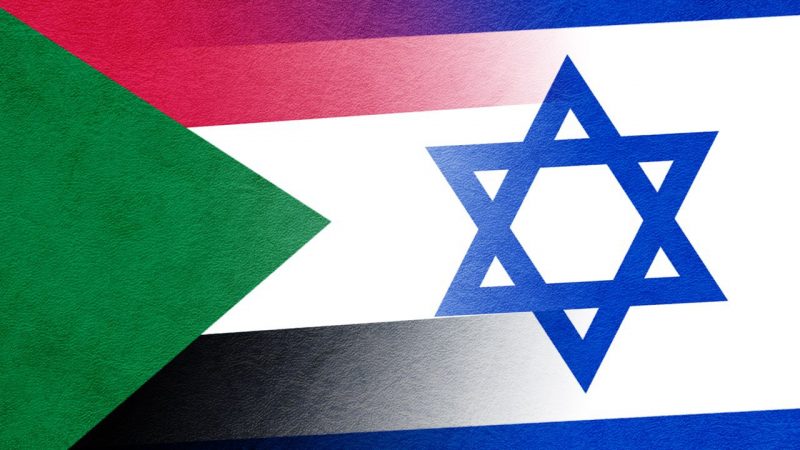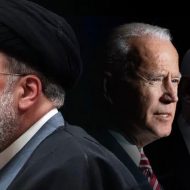On August 25, the US Secretary of State visited Sudan for the first time in 15 years. Mike Pompeo’s visit followed the landmark announcement that diplomatic relations had been established between the UAE and Israel. According to the State Department, Pompeo and Prime Minister Abdalla Hamdok discussed “positive developments in the Sudan-Israel relationship” in Khartoum.
Given the fact that Sudan has already approved Israeli flights to cross its territory, it is likely that Pompeo was attempting to persuade Sudanese leadership to follow the UAE’s path and establish diplomatic relations with Israel.
In February, Sudan’s transitional Sovereign Council Abdel Fattah al-Burhan met in Uganda with Israeli Prime Minister Benjamin Netanyahu. Later, there were reports of negotiations between Israel and Sudan regarding the fight against terrorism and the return to Sudan of illegal migrants who had settled in Israel.
Warming after the coup
On Tuesday, US Secretary of State Mike Pompeo went from Israel to Sudan in the first ever direct flight between the countries.
The US Secretary of State toured Sudan, Bahrain and the Emirates as part of the US’ efforts to get other Arab countries to establish relations with Israel as well. Pompeo refused to name the Arab country that planned to normalize relations with Israel next in his interview with the Jerusalem Post.
In April 2019, there was a military coup in Sudan, as a result of which the President of Sudan Omar al-Bashir, who had held this position for almost 30 years, was ousted from power by the armed forces of the country following protests. Many internal and external players were interested in the outcome of the coup.
Among them was the United States, which declared al-Bashir an international criminal and supported the protests. It is worth noting, however, that the US tacitly maintained ties with Sudan’s intelligence and security agencies, which played a key role in the coup.
Initially, people took to the streets to protest a rise in bread prices. However, peaceful demonstrations quickly escalated into riots due to provocateurs demanding the overthrow of the government. The overthrow of Omar al-Bashir seemed to be only the first stage of a major Western plan to increase its influence in Sudan, which, because of its location, is key to the entire region of East Africa and the Horn of Africa.
The Blacklist
Sudan was included in the list of countries sponsoring terrorism since 1993. At that time, a US court ruled that the Sudanese authorities were helping al-Qaeda. North Korea, Iran and Syria are also on the black list.
The White House expects Sudan will soon announce the normalization of relations with Israel, but it is not clear whether Khartoum is ready to take this step if the country is not excluded from this list, which would naturally be an obstacle for Western investments.
During the meeting with Pompeo, Sudanese Prime Minister Abdullah Hamduk claimed that the transitional government in Sudan has no authority to decide on the normalization of relations with Israel. However, after negotiations Pompeo noted a “positive development”.
At the same time, as the Guardian reports, Pompeo demanded Sudan to pay compensation to victims of terror in the amount of $330 million. The Sudanese authorities are not ready for this, especially given that the country already suffers from American sanctions.
The United States lifted economic sanctions from 157 Sudanese enterprises in 2019, although the decision was made two years earlier. However, several representatives and organizations of the country are still under US sanctions for their connection to the conflict in the Western Darfur region, where civil war broke out in 2003.
Being on the US list of major sponsors of international terrorism also entails an arms embargo and restrictions on US aid. For this reason, back in 1993, Sudan was disconnected from the international financial system, which eventually led to a catastrophic banking crisis in the country.
In December of last year, the Prime Minister of Sudan Abdullah Hamduk made an official visit to the US where the issue of excluding Khartoum from the list of countries sponsoring international terrorism was discussed. However, this issue has not been solved yet.
American blackmail
Yossi Cohen, the head of Mossad, said in a media interview that he expects a breakthrough in relations with “one African country” in the coming months, likely meaning Sudan.
Over the next few weeks, the Sudanese authorities will announce the normalization of relations with Israel, a senior official in the US administration told the US newspaper Israel Hayom.
Obviously, the US is using the issue of sanctions against Sudan as a bargaining chip to get Sudan to recognize the Zionist state. Sudan is not a wealthy African country, and was hoping that the overthrow of the old government would lead to the removal of sanctions which serve as a convenient tool for blackmail.
At the same time, Sudan is not happy with this prospect. Prime Minister of Sudan’s transitional government Abdullah Hamdock called on the US to consider separately the possibility of normalization of Sudan’s relations with Israel and lifting of American sanctions, Reuters reported on August 25. For Sudan, like any other Arab country, the issue of establishing relations with Israel is a painful one.
And if the will of the ruling class is enough to change the UAE’s official position with regard to the Zionist state, then in Sudan, which remembers the mass protests and where the protest movement is still strong enough, any sharp steps from the transitional authorities in this direction could be a spark from which a new flame of the national revolution will be ignited.
Unclear benefits
The course of the new leadership in Sudan towards “normalizing” relations with Israel exists, although Khartoum clearly does not want to rush in that direction.
The Sudanese people are looking forward to “a peace agreement” with Israel, based on parity and Sudan’s values, “without prejudice to our principles and constants”. This was stated by the official representative of the Sudanese Foreign Ministry, Haidar Badaoui Sadiq, in an interview with the Arab TV channel Sky News.
After this statement, Haidar Badaoui Sadiq was dismissed and his statement was disavowed; this shows the divergences in the Sudanese ruling class on the issue.
Sudan and beyond: what is behind growing Israeli interest in Africa
If Sudan becomes the second country to make peace with Israel, it will be evidence of the country’s apparent adherence to the course set by the UAE.
However, it is not yet clear whether this decision has brought any dividends to the UAE itself, which clearly relied on American support in return.
Thus, recently Benjamin Netyanyahu said he was aware of the planned deal to supply American F-35 aircraft Abu Dhabi, but the Jewish state is against it. The UAE had expected to strengthen its air force with American fighter jets of the fifth generation.
During a visit to Israel, Mike Pompeo confirmed that the US will continue to pursue a course to ensure that Israel has technological and military advantages in the region, which puts an end to the UAE’s dreams of military strengthening.
Israel remains the only one in the Middle East to operate the latest US-made F-35 multi-purpose fighters. Under agreements that have been in force for decades, Washington has refrained from selling weapons to the Middle East that could weaken Israel’s qualitative military advantage.
Obviously, if the F-35 deal between the UAE and the US does not take place, it will be proof of the hopelessness of efforts to get Middle East states to negotiate with the US and Israel.
For Sudan, this issue is of key importance. Washington promised to lift the sanctions imposed against the former regime, but has not fulfilled its promise. The West, and the US in particular, continue to play games with the Arab countries, not fulfilling their promises.
In a world where China and Russia (as well as Turkey in many spheres) could easily replace the US as high-tech weapon suppliers and investors, and where China is ready to offer cheap loans and investments, trading support for Palestine in order to obtain unclear benefits from the collapsing US empire seems unwise.









Leave a Reply